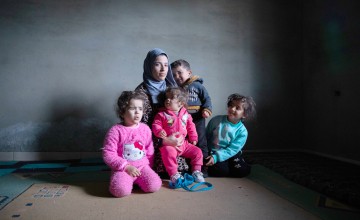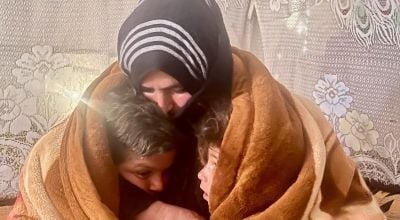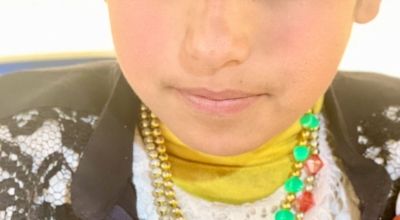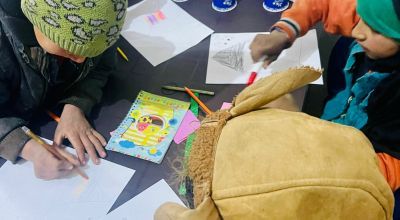
Read our 2024 annual report

Knowledge Hub
“Nearly everyone had a traumatic story to tell, some of them almost unimaginable in their brutality.”
Ten years later, Kieran McConville recalls his experience of meeting Syrian refugees fleeing into Lebanon in 2013. That year marked a catastrophic escalation of the Syria conflict, and the beginning of the Concern Syria response.
"Parents missing children. Children without parents”
“I was in Akkar, northern Lebanon, to document the situation for Concern. I had the opportunity to speak to many Syrians who had fled their homes and crossed the border. Pregnant women wading through rivers at night in wintertime, dodging bullets and explosions. Stories of entire families and villages wiped out. Parents missing children. Children without parents.”
Kieran, a roving photographer and videographer for Concern, was witnessing the beginning of the largest movement of people since World War Two. Despite the best efforts of Lebanese authorities, the sheer scale of need was threatening to overwhelm border communities such as Akkar.
Approximately 1.5 million Syrians ultimately fled into Lebanon, a country half the size of Munster with an existing population of just four million, limited resources, and a traumatic history of its own.
“It was pretty clear that this was going to be a massive and difficult challenge for everyone involved.”
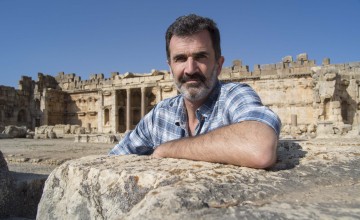
Shelter in a storm
Due to a policy preventing the establishment of formal refugee camps, families found space and shelter wherever they could. For the Concern Emergency Response team, sheltering refugees from the harsh winter weather was a priority.
“Makeshift tents and shelters had sprung up in fields, in clearings, on rocky hillsides, literally everywhere,” recalls Kieran. “The conditions were extremely difficult and the fact that everyone was scattered across the area made it very tough for our response team to even find them, never mind help them.
“Because there were a large number of semi-derelict or unfinished buildings in that part of Lebanon, the Concern shelter team set up a program of weather-proofing and renovation. At one point they even transformed a former poultry farm into quite comfortable accommodation.”
As well as shelter, Concern provided food, clean water infrastructure, psychosocial support, and informal education. “An important part of our work was to ensure that our infrastructure work - water, sewage systems, etc. - also benefitted the local population.”
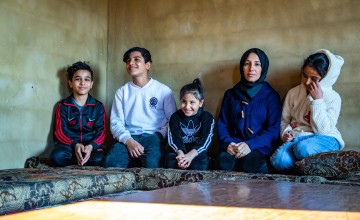

"We didn't think it would be over any time soon"
Around the same time Kieran was winessing the arrival of Syrians into Lebanon, Peter Doyle was 450 kilometres away in Türkiye, preparing to cross the border into Syria. “Time flies,” says Peter, who is now head of Concern’s Emergency Technical Unit.
“We had our base in a place called Akçakale, which is right on the border with Syria. We only had four or five people there at the time, it was a very small team. We were really only getting started. We crossed over the border into Syria, and we started the work. There were a number of armed groups controlling different parts of the town, so you would pass guys with guns and black masks on their faces, it was quite intimidating.
“We were trying to get the water systems working again. There was no power, so we were providing generators. They were using the generators for the water pumps. We were also giving chlorine pumps, to make sure the water was chlorinated.”
Did Peter imagine that the Concern response would still be going ten years later?
“We didn’t think it would be over any time soon. With these protracted crises, the duration of displacement can be over 20 years.”
Today, there are 5.5 million Syrian refugees, the vast majority living in neighbouring countries: Lebanon, Türkiye, Iraq, and Jordan.
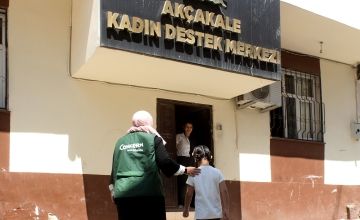
Concern in Syria, today
After nearly thirteen years of crisis, the situation in Syria has evolved – lines of conflict have become firmer, and some areas of the country are experiencing improved stability as a result. While many aspects of the Concern Syria response today would be familiar to the emergency response team of 2013 - with an emphasis on shelter, education, psychosocial support, and water – the approach has evolved along with the context.
“The starting point is that this is still an emergency environment,” says John*, a senior Concern Syria staff member. “We are currently in a sort of status quo in terms of the conflict. Northern Syria [where Concern Syria is working] has started to become safer, and access to different parts of the area has become more feasible, and markets have become more functional.
“When we started to respond, we looked at water: water trucking, rehabilitation of water systems. Now, ten years on, we’ve done a huge amount of rehabilitation so that adequate standards of water are accessible. Because markets have become more functional, we have transitioned from food baskets to cash vouchers. We have made an incremental change, where possible, from emergency response to more long-term approaches.”
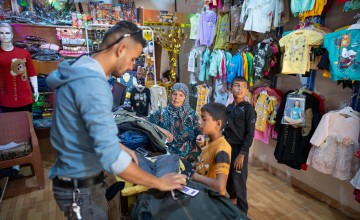
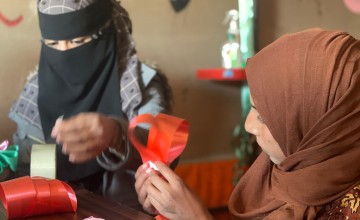
The crisis continues
Despite improved stability in some areas, over 13 million Syrians remain in need of humanitarian assistance. “The primary point is that humanitarian needs are increasing and funding is going down,” says John. “The Ukraine crisis is definitely having an impact. Syria relies on grain imports from Ukraine, and conflict has decreased supply, thereby pushing the price of grain up.
“The biggest issue is that people are not meeting their basic needs. When there is a gap in support, households are forced to make very drastic coping decisions. Sometimes it’s their child being pulled out of school so that they can either go into the workforce or be put into early marriage. I think, ultimately, each household is being faced with very difficult dilemmas.”
As Syria has moved off the front pages, and the crisis has dragged on, humanitarian organisations are struggling to maintain funding in the face of increasing donor fatigue. Concern has successfully continued programming in Syria due to the continued support of partners including the European Union (EU ECHO), Irish Aid and BHA.
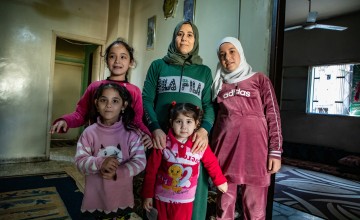
"There are still people living in tents in Akkar"
Kieran McConville has documented numerous disasters and emergencies for Concern, but the images of Syrians fleeing in 2013 stand out in his mind.
“It was a crazy time, with such a massive movement of people, and such a demand for resources and assistance.
“Our team in Lebanon were incredible in their efforts to support people. I don’t think many would have predicted that the crisis would last for over a dozen years. There’s a whole generation that has grown up knowing nothing but exile and deprivation, which is very sad.”
“It blows my mind that, to this day, there are still people living in tents in Akkar.”
